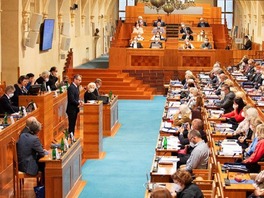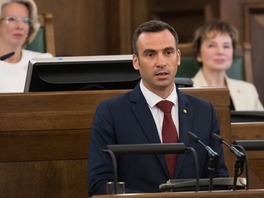The Ukrainian Prosecutor General's Office (PGO) has filed an appeal against the ruling by Kyiv's Pechersky District Court to select round-the-clock house arrest as a measure of restraint for Ukrainian MP Viktor Medvedchuk, Ukrinform reports.
The Office of the Prosecutor General appealed against the decision of the Pechersk District Court of Kiev on the house arrest of People's Deputy from the Opposition Platform - For Life party Viktor Medvedchuk,who is suspected of treason.
"The Prosecutor General's Office has appealed against the Pechersky District Court's decision to apply to the suspected MP a measure of restraint in the form of round-the-clock house arrest," the press service of the Prosecutor General’s Office said. Instead, prosecutors asked the court to detain Medvedchuk, with the alternative of posting a UAH 300 million bail.
It's worth noting that on May 11, Prosecutor General Iryna Venediktova signed suspicion notices for MPs Viktor Medvedchuk and Taras Kozak. They are suspected of treason and the attempted plundering of national resources in Crimea.
It is believed that Medvedchuk negotiated with the aggressor state to re-register the Hlyboka oil and gas field in the Black Sea, 75 km from Feodosia, and to extract minerals, which are Ukraine's national resource. In addition, Medvedchuk is suspected of treason (passing secret information about a military unit of the Ukrainian Armed Forces to the aggressor state).
On May 13, Investigative Judge at Kyiv's Pechersky District Court Viacheslav Pidpalyi ordered Medvedchuk to be placed under a 24-hour house arrest. If proven guilty under the treason article (Part 1 of Article 111 of the Criminal Code of Ukraine), they face imprisonment for a term of 12 to 15 years with or without confiscation of property. For the plundering of national values in the occupied territories (Part 1 of Article 438 of the Criminal Code of Ukraine) they face imprisonment for a term of eight to 12 years.





